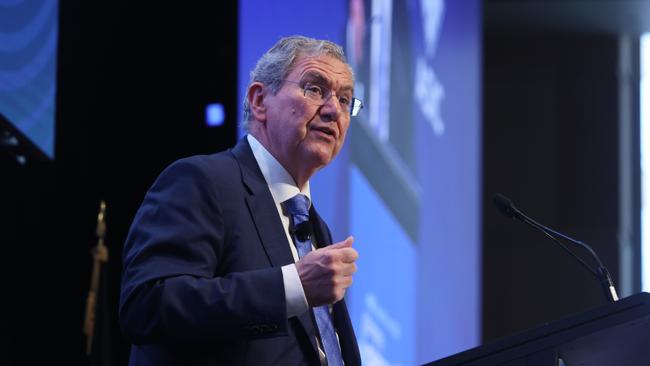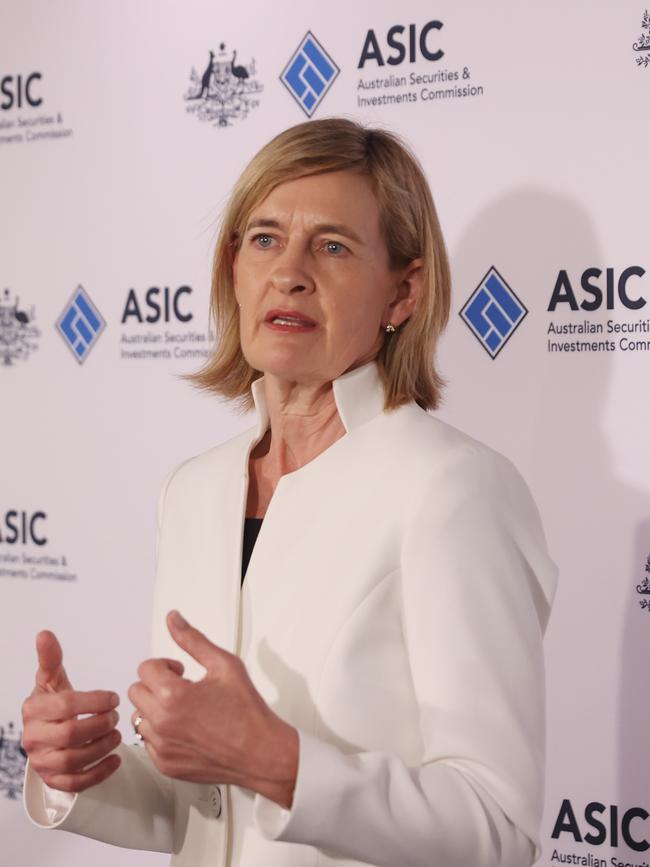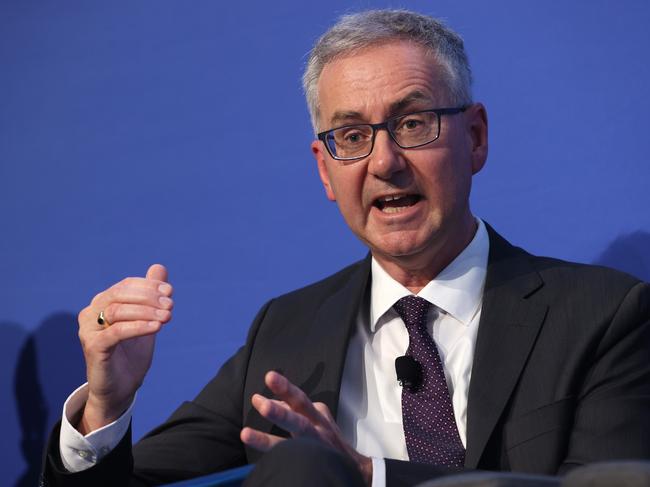‘Stress test’ of big super should probe more than co-dependency with banks, ASIC forum hears
Big super is facing a crackdown after a week of damaging allegations against Cbus, and amid calls for a ‘stress test’ for the sector to go further.

Leading regulators and business leaders have warned Australia’s big super industry faces a crackdown, amid calls for a “stress test” of the sector’s co-dependency with banks to be expanded to infrastructure and energy.
The calls for an expanded probe into the $4 trillion sector, which holds the life savings of 17 million Australians, came after a week of damaging allegations that industry fund Cbus took more than a year in some cases to pay out death and disability claims.
Australian Securities and Investments Commission deputy chair Sarah Court said ASIC is doing a “deep dive surveillance” of super trustees, after it lodged a Federal Court case on Tuesday alleging Cbus mishandled $20m worth of claims for grieving families and vulnerable people.
After Australian Prudential Regulation Authority chair John Lonsdale discussed plans to stress test the sector at the Australian Securities and Investments Commission annual forum, Commonwealth Bank and Transurban Group director Rob Whitfield said the sector’s co-dependency with other industries like energy and infrastructure should be probed as well.
“I know … (the) systemic risks and co-dependency between banks and the superannuation industry (are getting coverage). It’s appropriate to get that focus,” Mr Whitfield said.
“But I personally would say that co-dependency exists already in a number of industries with the super funds, and it’s just going to increase.
“It already exists in the infrastructure industry. So the big super funds are the main owners of Transurban. The big super funds are also in each individual asset as an equity holder. They play in every part of the capital stack already in the infrastructure sector.”

As well, Mr Whitfield said as the country embarks on an energy transition “we’re going to find big super in all the parts of the capital stack there”, too.
“That co-dependency is just going to end up being in each industry that is a significant make-up of the Australian economy.
“So it’s right the regulator’s (looking) into it,” he said.
“It’s natural to start with the banking sector, but I think it’s a missed opportunity if we just stay with … the banking sector, because there might be an exogenous event that happens in another sector where that co-dependency gets exposed first.”
UniSuper non-executive director Peter Warne said “there is a very strong co-dependency between the super industry and the bank industry”.
“They are co-dependent in the sense that the super funds … they’re going to be big investors in all our banks, as well as CBA,” he said.
“In addition to being investors, they’re also big depositors. And then on the other side, the banks are big service providers to the superannuation industry pension payments.”
Mr Lonsdale earlier said “one of the new things that we’re doing, the Bank of England has started this … is a system-wide stress test”.
“It’s saying, well let’s have a hypothetical shock in super and let’s just see how that reverberates through the system. What are those linkages?” he said.
“And if we can do that successfully next year, we think it will give us a much better sense of what the risks are of dealing with those.”

Mr Londsdale said there are liquidity risks in the sector with an ageing population, and system wide stress tests would examine the impact of mass withdrawals.
“We are saying to trustees, make sure what you’re doing is in members’ best interests,” he said.
He would not be drawn on ASIC’s court case against Cbus that the fund allegedly mishandled $20m worth of member’s money.
“I don’t want to say too much on this other than what we said on the public record, that we have imposed some licence conditions. We are working on that entity,” he said.
“Our key mandate is to make sure that trustees are operating in the members’ interest and where we have a question on that we will take action, and that’s what’s happening in this particular case.”
Mr Londsdale said there are liquidity risks in the sector with an ageing population which seeks to withdraw its nest eggs, and the impact of that on the financial system is on the regulator’s agenda.
In response to a question from wealth platform HUB24’s chief risk officer Deborah Latimer about why ASIC’s regulatory focus was on the default super sector, rather than the choice sector where she said the bulk or 70 per cent of investment sits, ASIC chair Joe Longo said the watchdog’s focus is on customer outcomes.
“The fact is, the system is not delivering for a lot of Australia, and the size of the sector is growing so quickly that as regulators, we need to really be very vigilant about is this working.”






To join the conversation, please log in. Don't have an account? Register
Join the conversation, you are commenting as Logout